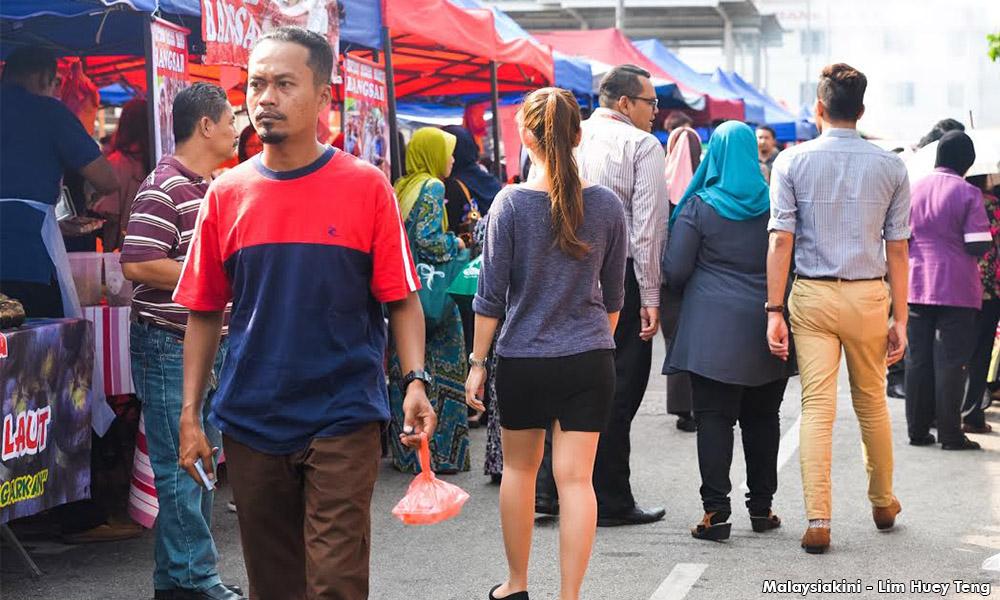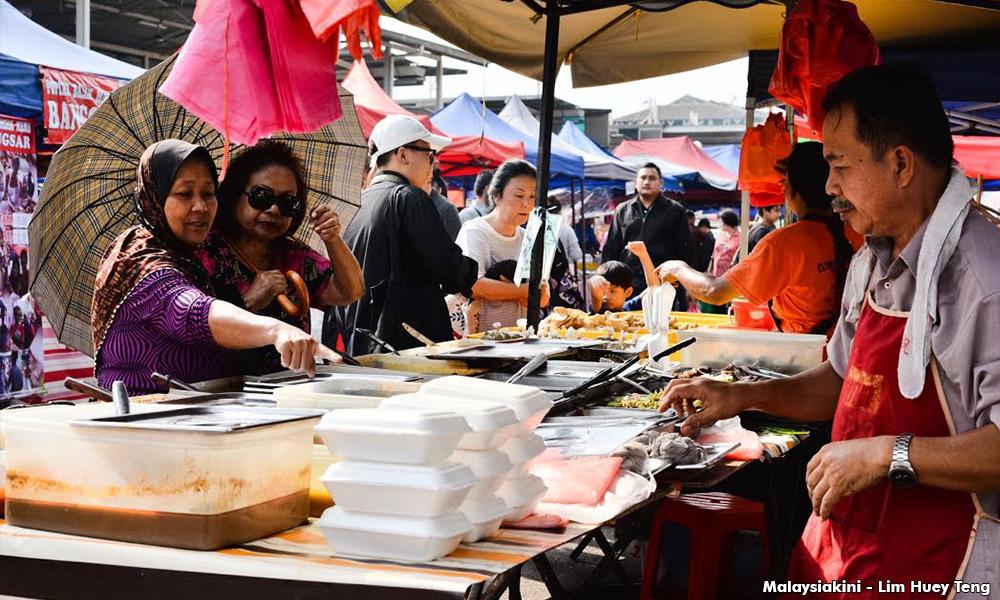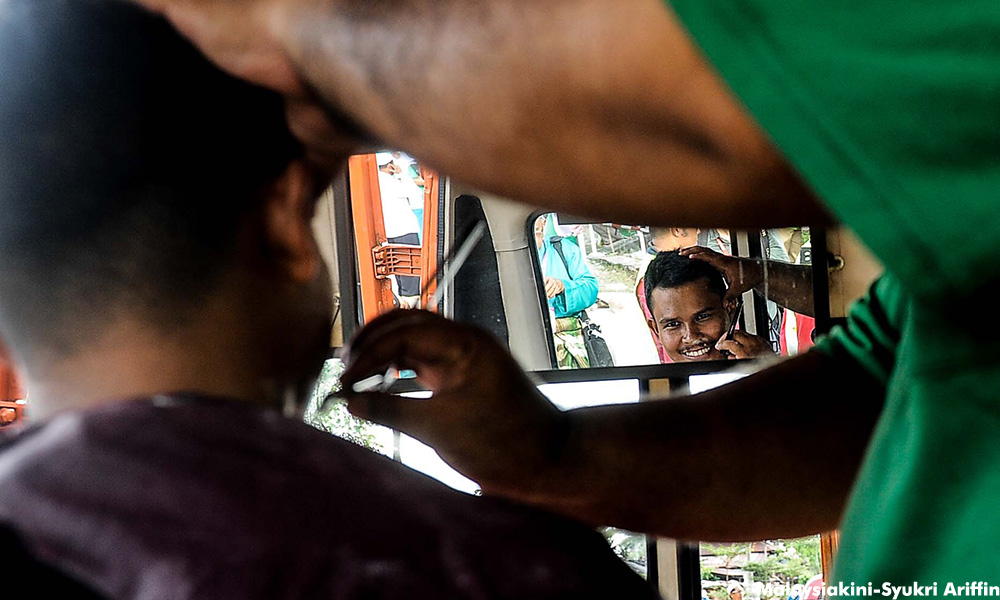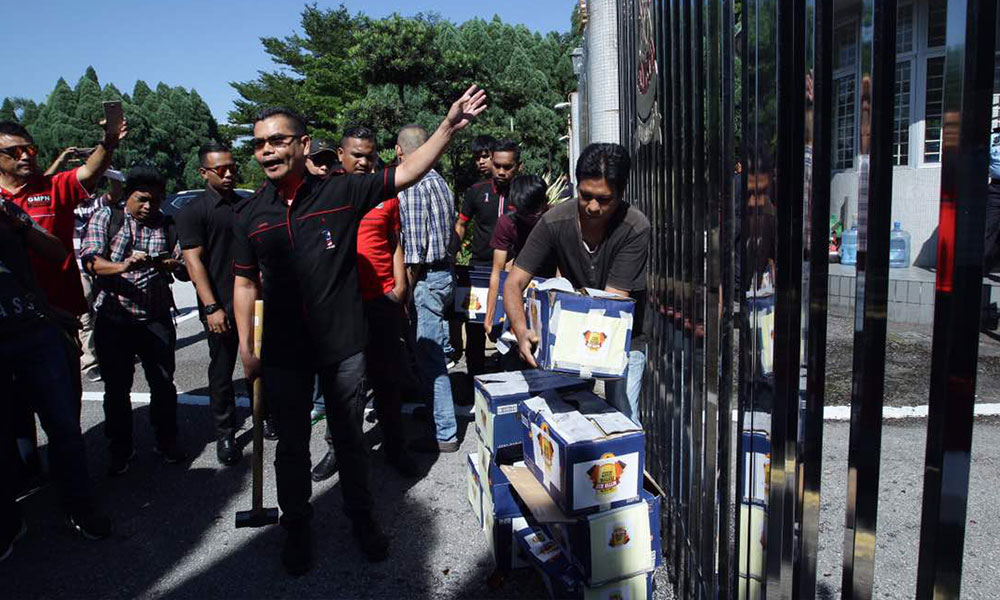
A few days ago, the bogus dentist, Nur Farahanis Ezzaty Adli who was jailed after being convicted by the Malacca Sessions Court of running an unregistered and unlicensed private dental clinic, apologised.
Pleading others to understand her situation as a young 19-year-old (at the time she started the con job) who knew nothing about the law, she claimed her ultimate focus was to make money, failing to consider the repercussions of her action.
Her statement actually contradicts the video she made soon after paying the RM70,000 fine which got her out of jail, where she was seen grinning ear to ear, arrogantly thanking those who criticised her -because they had brought her fame, making her richer and successful.
While I believe a con(wo)man is capable of saying whatever it takes to get themselves off the hook (also to help unhook those who have aided her along the way), I am more concerned about the attitude of ordinary Malaysians, especially the Malays regarding the case.
If you realised it, as I have, a great majority who have been lashing out at this bogus dentist appears to be the non-Malays. Why? Can’t the Malays see the seriousness of the crime committed by the young woman as have the non-Malays?

So I decided to browse through the streams of comments flooding the various social media platforms pertaining to this case, giving special attention to comments by the Malays. While I stumbled upon a few comments left by open-minded Malays who were capable of recognising the implications of the crime, there were some pea brain comments defending the bogus dentist.
“She may be unqualified but no one died under her treatment. On contrary, it was a qualified dentist who caused the death of the son-in-law of our Deputy Prime Minister.”
“The best way to handle this is for her to be sent off for social services.”
“There is a blessing in disguise. Thanks to this case, public are more aware of professional services provided by people without license.”
“An individual who is in trouble should be assisted, not bashed further.”
“She is still young. Give her a chance.”
I almost gagged reading those comments.
I suppose it is rather difficult for them to judge a young Malay woman clad in headscarf as she is seen as a good Muslim girl and as we all know, a good Muslim is incapable of committing any sins, right?
Try stripping her headscarf, painting her hair blonde and dressing her in anything but baju kurung – you may get them to say – “Tu lah, dah perangai macam kafir, patut sumbat dalam penjara je.”
On second thought, swap her race and you may see streams of comments blasting her – “Tu lah, depa ni sanggup buat apa pun untuk duit.”
Do I sound like I am turning this into racism? Well, that’s absolutely right. I do think this has everything to do with race.
The truth is, most Malays have soft spots for other Malays whom they perceive to be on the same wavelength as them. Why else do you think many male convicts attend court with kopiah? Fashion sense? Please-lah.
But the Malays are not alone, as other races have soft spots for their own kind, too.

It happens in my own Mamak community. That’s why most Penang Mamak prefer to match their sons with Mamak girls - because they believe Mamak girls are nicer, kinder, more polite, obedient, and better equipped with homemaking skills - hence they are seen as a better wife, as compared to a non-Mamak girl.
Some Chinese seem to have the same idea. A friend told me how he preferred to hire a Chinese over other races because Chinese are perceived as hardworking individuals and could function better in a working environment as they continuously strive to improve themselves as compared to other races whom he perceived to be ‘a bit lazy’.
In my friend’s own words, “Since young, Chinese parents teach their kids that if we don’t work hard, no one else will help us. We grow up with the mentality that if we do not strive, we die-lah. I don’t think other races do that.”
I suppose the Malays are no different. Since young, their children are exposed to religious teachings, making them well aware of right and wrong; good deeds and sin; heaven and hell – thus, they believe these teachings to be engraved in the souls of Malays, making them somewhat of a better human.
In the case of Indians - this is funny - an Indian acquaintance who was renovating his house once told me that he got Indonesian workers to get the job done after the Chinese contractor he first hired ran away with his deposit and the Malay contractor who was hired later on started using cheap materials instead of quality ones.
I asked - him why not hire Indians? To which he said – “An Indian never trusts another Indian. Lazy buggers they are.”

Whatever race we are, most of us have our stereotypical perceptions of each other. This perception sadly clouds our judgement most of the time. The worst part is, many of us do not realise it and even when it hits us right in the face, we still have trouble admitting it.
This is exactly why Jamal Yunos fighting Oktoberfest is seen as an act of a pahlawan Melayu defending Islamic teachings while non-Muslims fighting corruption is seen as a move against the government; an ustaz advising Muslims to avoid getting a haircut at non-Muslim salons is seen as a call to improve the economy of Muslims, while a Chinese street trader giving a special price to his fellow Chinese is seen as an act of discrimination.
The fact is, as much as we aspire to be one tight-knitted society, it would be a difficult task to achieve if we can’t even differentiate right from wrong if our own kind is involved.
FA ABDUL is a passionate storyteller, a growing media trainer, an aspiring playwright, a regular director, a struggling producer, a self-acclaimed photographer, an expert Facebooker, a lazy blogger, a part-time queen and a full-time vainpot.- Mkini



No comments:
Post a Comment
Note: Only a member of this blog may post a comment.